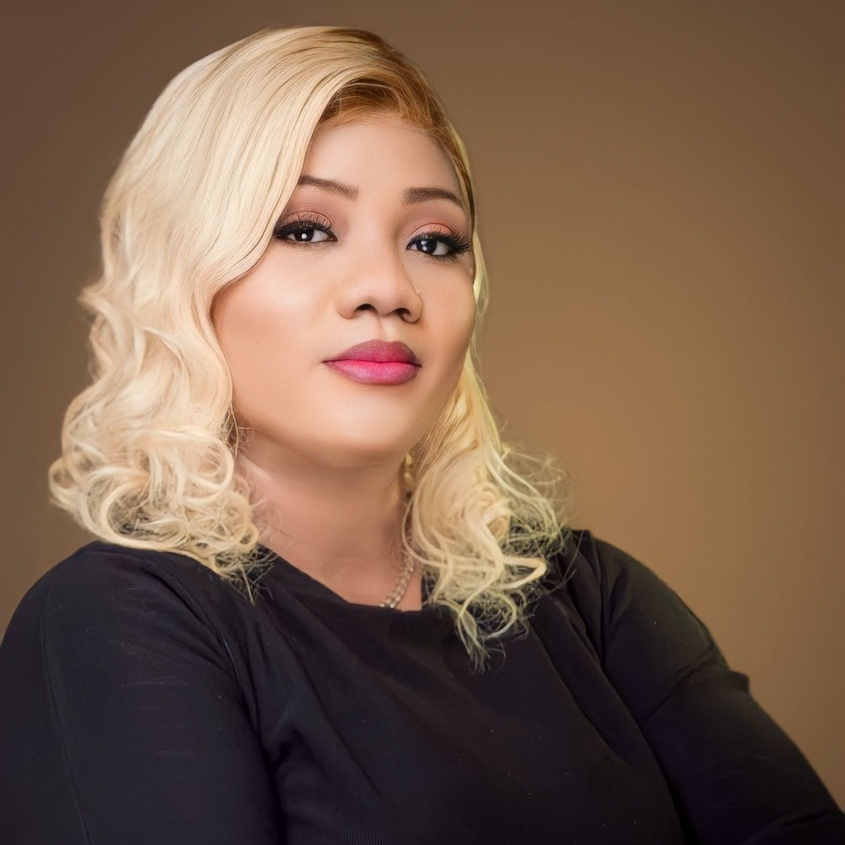Early in her career, Linda Obi devoted her time to a tech product that she hoped would disrupt the industry. As with resources, she poured every ounce of her energy into the project, hoping for a lucky break. Contrary to her expectations, however, the product suffered a disappointing debut, forcing her to shut it down.
“That failure was crushing at the time, but it taught me invaluable lessons about understanding my audience, the importance of timing, and the need for adaptability,” Obi recalls, highlighting how the initial setbacks became a springboard for her current success.
Generally perceived as a setback, failure is an inevitable part of most remarkable careers, providing critical lessons in problem-solving and resilience. Similarly, for Obi, that initial crushing failure refined her approach and set her on the trajectory of becoming a leader in the digital health space.
Raised in an ambient part of Lagos as the eldest of four children, Obi grew up recognising the value of education and resilience from her hardworking parents. Her vibrant community in Festac shaped her awareness about social disparities, particularly in healthcare. “Living in Lagos, you couldn’t ignore the gaps in healthcare access. Even as a child, I knew I wanted to do something about it,” she says.
Long before she became a healthcare innovator, Obi explored blockchain technology, working at the interaction of finance and agriculture. Experience in these fields later informed her novel approach to healthcare—a move that was ahead of its time.
“Life has a funny way of guiding you. I was always curious about how things worked, and that curiosity naturally drew me to the sciences,” she remarks. “When I saw the impact of not having access to quality medical care, I knew I could make a difference.”
Her work in digital health has been groundbreaking. At AfriHealth, she spearheaded efforts to digitise processes across the healthcare value chain, developing a comprehensive digital platform that streamlined everything from patient records to supply chain management. The challenge extended beyond creating the technology; it required ensuring its adoption. This involved close collaboration with healthcare providers, from small clinics to larger hospitals, to help them transition smoothly to the new system.
To address these challenges, she champions strong mentorship programmes, targeted education, and inclusive workplaces. Mentorship, she believes, is crucial for connecting women with industry leaders who can provide guidance and advocacy. Additionally, fostering environments where diversity is celebrated and everyone has equal opportunities to succeed is essential for progress.
The impact was significant: administrative errors became fewer, time spent on manual processes reduced and patient care delivery improved remarkably. The widespread adoption of the platform across diverse healthcare settings was a clear indication of its success. It wasn’t just about technology—it was about making a significant difference in people’s lives.
Linda’s achievements in the digital health space are particularly remarkable considering the challenges facing women in the tech industry. Gender inequality remains a persistent barrier. Women are often under-represented in technical roles and decision-making positions, leading to a lack of diverse perspectives in critical areas like innovation and product development.
Her proudest moment as an entrepreneur came with the successful launch of her telemedicine platform, Rigour+, in a rural community with limited access to healthcare. Its impact was immediate and profound: it helped save a patient’s life in a remote village. People who had long struggled to receive medical attention were suddenly able to consult with doctors and receive accurate diagnoses and treatment. In one case, a far-flung local clinic connected with a specialist via the platform for direction on a critical procedure. “It was incredibly rewarding. It was a clear affirmation that the work we’re doing is making a real difference in people’s lives,” she said. This experience reinforced her belief in the power of technology to bridge gaps and transform lives, reinforcing her commitment to improving healthcare through digital solutions.
Obi sees a growing relationship between traditionally distinct industries like oil and gas and digital health, driven by technology and sustainability needs. Both sectors are optimising operations using big data and the Internet of Things, resulting in their mutual benefits. For instance, advancements in remote monitoring developed for energy could be adapted for healthcare, particularly in underserved areas.
“As the world shifts towards more sustainable energy solutions, there’s a strong emphasis on corporate social responsibility (CSR). Energy companies are investing in health initiatives, particularly in communities where they operate,” Obi explains. “This means there’s a growing need for digital health solutions that can be integrated into CSR projects, providing remote healthcare services in underserved areas.”
With over 15 years of experience in fast-moving consumer goods and agri-tech, Obi is recognised as a Top 100 Woman of the Future and a Forbes Business Council member. At her startup called Techonomy Africa, she merges blockchain education with practical applications, and at Zenith Chain, she led a successful $36.5M investment round.
Together with resilience and a strong sense of purpose, Linda emphasises the importance of being adaptable and committed for young leaders aiming to leave a lasting legacy. Cultivating these qualities, she adds, depends on mentorship and a conducive learning environment.
True to her ambitious streak, Obi’s vision for the future is bold and transformative. She envisions a world where women break through systemic barriers and drive technological advancements.
Linda Obi’s journey in the tech and healthcare industries underscores the transformative power of resilience and adaptability. Initially, her tech product failed to disrupt the industry, teaching her crucial lessons in understanding audiences, timing, and flexibility. Raised in Lagos, she was acutely aware of healthcare disparities from an early age, which fueled her passion to make a difference. Prior experiences in blockchain, finance, and agriculture informed her innovative approach in digital health.
At AfriHealth, Obi led initiatives to digitize healthcare processes, significantly improving patient care and reducing administrative errors. Her successful telemedicine platform, Rigour+, exemplified her impact, notably saving a patient's life in a remote village and enhancing healthcare accessibility. Obi also emphasizes mentorship, diverse workplaces, and CSR (corporate social responsibility) collaborations, particularly integrating digital health solutions into initiatives by energy companies.
Recognized in numerous prestigious circles, including being a Top 100 Woman of the Future and a Forbes Business Council member, Obi combines blockchain education with practical applications at Techonomy Africa and successfully led a significant investment round at Zenith Chain. Her vision remains focused on breaking systemic barriers for women and driving technological progress.






